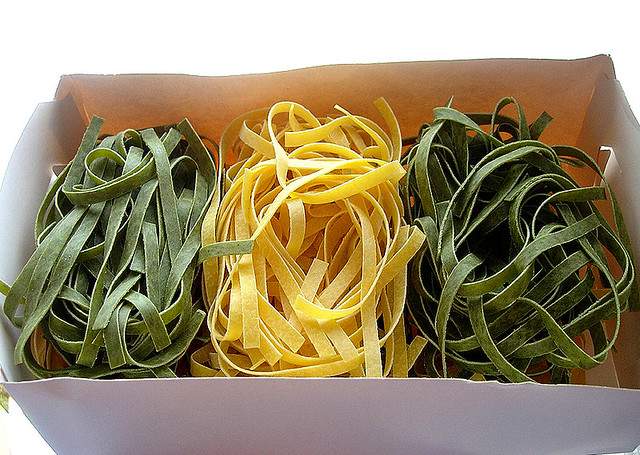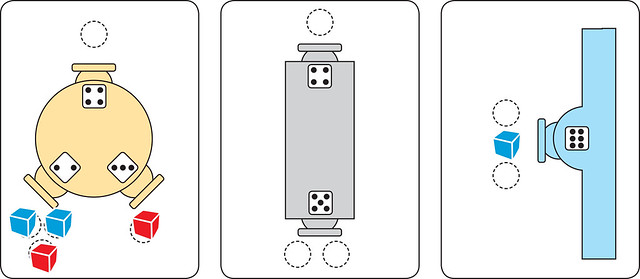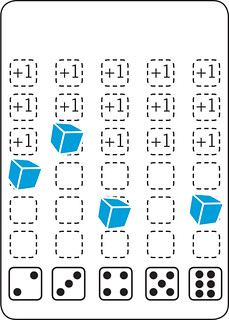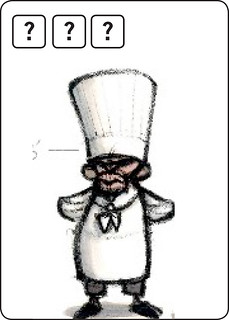
I'm still developing the dice game Noodle Roll when I get a rare moment. I'm eager to put the beta prototype through its paces before I really let it out into the wild. For the moment it's looking like a potential print-on-demand release, depending on whether that market would be willing to provide their own tokens and dice. Here are the details so far:
» Original pitch
» Further notes on revising the theme
Now I've settled on a few key elements that would make it more marketable for a POD/DriveThruCards release.

- Each table is a card. During setup, you randomly draw a certain number of three-tops, two-tops and one-top tables to make the board.
- Each diner is still represented by a die face, as shown in previous blog posts, but they also have one, two, or three spaces in front of them. These spaces represent the diner ordering one, two or three courses for their meal. Thus, a diner with two or three spaces may be served two or three times. This makes the game a little longer and offers players more opportunity to grab adjacency bonuses.
- I can also possibly add some kind of suit system to these cards to embed even more data for victory conditions, but I don't know a thematic reason for those suits. I'll think about it though.
- I've revised the dice positions so that "1" is the wild cube. This allowed me to remove one exception from the rules, which is always a good thing.
- I've also revised the player board so that you do not have to serve a dish in the same round you make it. Instead, you can "simmer" by moving up a marker on your player board in the column corresponding to the die face. This makes "serve" its own action, in which you score the points noted by the face, plus bonuses, and then place another marker on a corresponding diner of the board.
- This also opens up the option for "advanced" player boards in which some dishes increase their bonuses at earlier or later stages. Perhaps even negative points if the dish is "overcooked!"
- And lastly the "power cards" of the game have been a sticky wicket. I wanted an economy system based on the dice, but keep them limited to the immediate moment. No currency carrying over.
- So for now, I'm saying that you buy a card by setting aside a certain number of dice in your turn, noted by the power card. This makes a nice solid upper cap for costs based on dice pools.
- This also makes an unusual tension between long-term chaos and short-term order. Usually you see the long-term option being more orderly and vice versa.


No comments:
Post a Comment